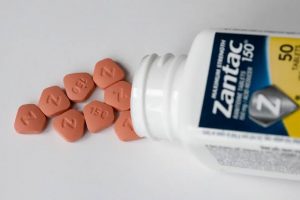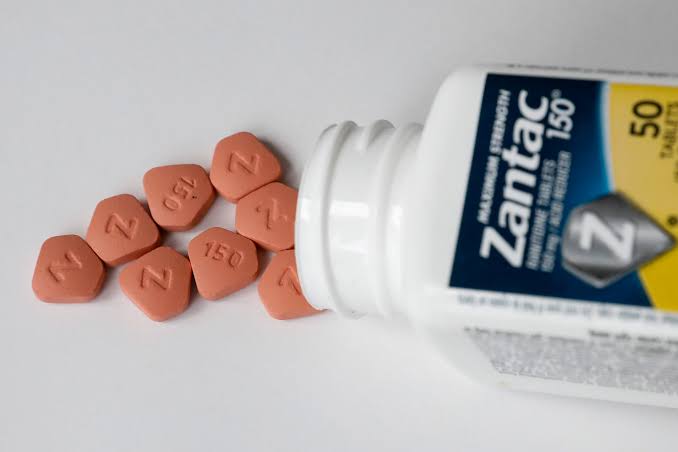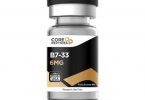Indigestion and heartburn are common issues that affect millions of people globally. Zantac is a drug that is commonly used in order to effectively prevent and treat indigestion and heartburn. However, FDA research has found that the drug contains elevated levels of N-nitrosodimethylamine (NDMA).
NDMA is a probable carcinogen, so the drug has been deemed a possible health hazard. Most pharmacies have removed the drug from their shelves due to the possibly serious health risks that Zantac, and its generic variant ranitidine, present.
In fact, the Food and Drug Administration asked that all ranitidine products be removed from the market on April 1, 2020. If you have taken Zantac or ranitidine, then you may be concerned for your welfare.
Here we will discuss what you should do if you have taken Zantac.
What is Zantac?
Zantac (ranitidine) is chemically known as ranitidine hydrochloride, and is part of a class of drugs used to treat heartburn and related conditions. It is manufactured by the drugmaker Sanofi.
It is used to reduce the amount of acid that is produced by the stomach. It may also prevent the formation of ulcers in the stomach.
What to Do If You’ve Taken Zantac

If you are a patient and are currently taking Zantac, then please discontinue use immediately. Please talk to your doctor so that they may prescribe another over-the-counter acid reducer medication.
There are many such alternative medications that you can take that are also approved by the Food and Drug Administration. An FDA report found that Zantac has been associated with a wide array of unpleasant and harmful side effects. As well, the report found that Zantac may be a possible carcinogen.
Also, please do not panic. Simply stop using the drug and make an appointment with your doctor. You should discard any leftover Zantac in the garbage, or you can flush the drug down the toilet. Do not discard the drug at a drug take-back site in your area. Due to the ongoing pandemic crisis, it may be best to dispose of the drug at home.
While Zantac does contain more than the regulated amount of NDMA, the amount is comparable to many commonly consumed products, including alcoholic beverages, certain meats and cheeses, and even some drinking water sources.
You should also discuss the matter with your doctor. If you do not wish to discuss the issue with your doctor, or they are not available, then consult with another medical healthcare professional.
Ask them about alternative medications that you can use in order to obtain relief. You do not have to live with heartburn and indigestion, as both conditions can make living a normal life next to impossible.
The alternative medications that are available may also carry their own unique set of possible complications or side effects. It is best to candidly discuss all alternative medications so that you are fully aware of the risks before consumption.
Be Aware of Dangerous Symptoms
According to the Environmental Protection Agency (EPA), overexposure to NDMA can cause vomiting and nausea. Other symptoms to look for include yellowing of the skin, as well as painful abdominal cramps. Some patients who have taken Zantac over a prolonged period of time have also reported bouts of dizziness as well as fever.
If you have taken Zantac in the past, and have experienced any of the aforementioned symptoms, then you should make an appointment with your doctor as soon as possible. Your doctor may refer you to a local clinic or hospital in order to run some tests that will determine if excess NDMA was the cause of your symptoms.
If it is determined that Zantac was the cause of your health problems, then you may want to consider filing a lawsuit against the drug company that manufactured it. Zantac consumption may also increase the risk of cancer in some patients.
Risk of Getting Cancer After Taking Zantac
You will not develop cancer simply by taking Zantac once or twice. An elevated risk of cancer will develop if you have taken large doses of the drug over a prolonged period of time.
Overexposure to NDMA has been clinically shown to elevate the risk of developing a plethora of different types of cancer. However, it should also be noted that not all Zantac products have been tainted with excess amounts of NDMA.
As for the types of cancer that have been linked to excess NDMA in Zantac, they include bladder, pancreatic, esophageal, kidney, lung, liver, and gastric (stomach) cancer.
Filing a Lawsuit
Cancer will affect roughly 1 in 2 people on the planet at some point in their lives. Despite recent advances in cancer treatments, cancer can still cause great suffering, pain, and even death.
If you or someone that you love has taken Zantac and been recently diagnosed with cancer, then you may be eligible to file a lawsuit. The manufacturers of Zantac, and over-the-counter Zantac, acted in a negligent and unscrupulous manner.
You and your loved ones deserve to be compensated for your pain, suffering, and possible loss of a beloved. Also, you may still be eligible to file a lawsuit even if you never developed cancer due to the drug.
You may be able to obtain compensation via a class-action lawsuit against the manufacturers of over-the-counter Zantac and prescription Zantac as well. At the very least, you should receive compensation in order to cover the amount that you spent on the drug.
Speak to an Attorney
You may not want to wait, so see if you qualify for compensation. Speak to an attorney in your area in order to determine your eligibility. You may be able to seek justice against the Zantac drug manufacturers who created and sold a potentially cancer-causing drug.
Most attorneys will provide you with a free, no obligation consultation so that you can openly discuss your unique situation without any pressure to partner with them.
Life is precious and fleeting, so do not hesitate to take action against the dishonest manufacturers of Zantac in order to obtain the compensation that you need and deserve.
AUTHOR’S BIO:
Erin Gregory is a blogger in Toronto. She is currently working as a Community Manager for several small businesses. She has graduated with honors from the University of British Columbia with a dual degree in Business Administration and Creative Writing. He also likes to research various topics related to health, law, finance and business solutions.








